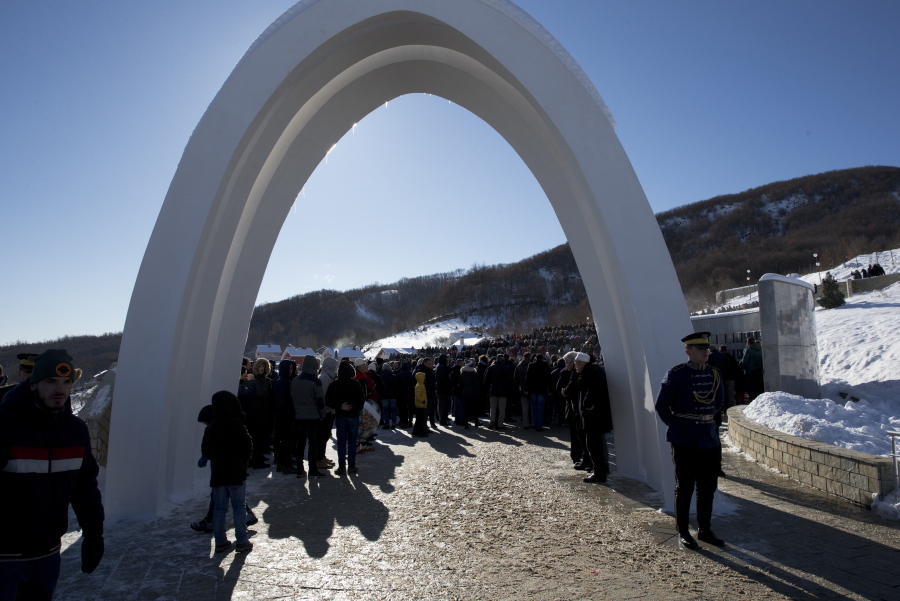RECAK, Kosovo — Thousands gathered Tuesday in the southern Kosovo village of Recak to mark 20 years since 45 ethnic Albanians were slain by Serb forces in a mass killing that sparked international anger.
The killings were a major factor in NATO’s decision to launch an air campaign to end Kosovo’s 1998-99 war.
The Serbian government of President Slobodan Milosevic claimed at the time that the dead were all members of the rebel Kosovo Liberation Army killed in combat with state security forces. The dead included a 12-year-old boy.
Top government officials and ordinary people on Tuesday gathered at the cemetery in Recak, 32 kilometers (20 miles) south of the capital, Pristina.
Kosovo Prime Minister Ramush Haradinaj, himself a former KLA fighter, said that the “pain, blood and sacrifice of the people are not lost.”
The war left more than 10,000 dead and 1,650 are still unaccounted for. Kosovo’s 2008 declaration of independence isn’t recognized by Serbia.
This week, a special international court on war crimes during and after the war began questioning members of the Kosovo Liberation Army — as well as Kosovo’s ethnic Serbs — over alleged crimes against Serb prisoners.
The Kosovo Specialist Chambers and the Specialist Prosecutor’s Office in The Hague was set up amid U.S. and EU pressure after a 2011 report by the Council of Europe, the continent’s top human rights body, which catalogued allegations of widespread crimes committed by members of the KLA, including the harvesting of organs for illicit transplantations from a small number of prisoners.
The 20-year gap between the war and the current phase of the investigation underscores the difficulty of meting out justice in ethnically divided Kosovo. Former KLA wartime leaders are now governing the country in top positions of power.
Many of Kosovo’s ethnic Albanians see the questioning as an injustice.
“Twenty years after, they are still judging us … still accusing us,” said Limon Hajdini, 79, a local resident who lost family members in the massacre.
Pristina-Belgrade relations are still tense despite the eight-year EU-facilitated talks to normalize their ties, a key step required in their moves toward integrating with the bloc.
Llazar Semini contributed from Tirana, Albania.
Follow Llazar Semini on Twitter: https://twitter.com/lsemini



